About Sinnissippi Centers
Sinnissippi Centers is a Joint Commission-accredited community behavioral health provider serving four counties in northwestern Illinois within the Rock River Valley region. They operate eight locations across these counties including scenic Mount Carroll, the seat of Carroll County. Sinnissippi Centers offer substance use recovery and mental health services for children, adolescents and adults.
Their services cut across outpatient therapy and case management, crisis intervention and recovery housing options for people in the early stage of recovery. They inspire community wellness through nonjudgmental care, empowering everyone to live their best lives. Their services are provided with language interpretation to ensure accessible care for diverse communities.
The Mount Carroll office is situated on Healthcare Drive near Point Rock Park. The facility also serves patients from Morrison and Rockford.
Crisis Support and Stabilization
Sinnissippi Centers in Mt. Carroll boasts crisis experts that provide 24/7 crisis support for adults, adolescents and children experiencing acute symptoms of substance use disorder or mental illness. This may encompass folks experiencing painful withdrawals or those involved in self-harming behaviors like excessive alcohol and drug consumption and cutting.
Crisis support provides immediate relief to restore stability and proper functioning and connect patients to the appropriate level of care for ongoing support. They can deliver crisis care in the office setting as well through their community crisis response team and community support team services.
Integrated Care For Lasting Healing
Sinnissippi Centers adopts an integrated approach to behavioral health that treats the whole person, not just your addiction. Their adult and adolescent services are tailored to the unique needs of each age group while sharing core recovery and mental health principles.
They offer mental health and substance use disorders assessment and individualized treatment planning. They also provide an intensive outpatient program with day and evening sessions to enhance convenience. They also offer medication-assisted treatment for opioid use recovery and trauma therapy for folks whose substance dependence is fueled by past trauma.
Medication assessment and monitoring are provided as part of integrated care to facilitate well-rounded recovery. Court-ordered services like DUI evaluation and risk education are accessible here, too. You can also access specialized family services like family education, divorcing parents programs and parenting support services. They coordinate family care and deliver tailored support for DCF-involved families.
They also offer domestic violence intervention, anger management counseling and life skills development. School-based counseling and student assistance programs (SAP) are available for school-aged children. They even provide specialized community services for youths aged 18 to 25.
Latest Reviews
Rehab Score
Gallery
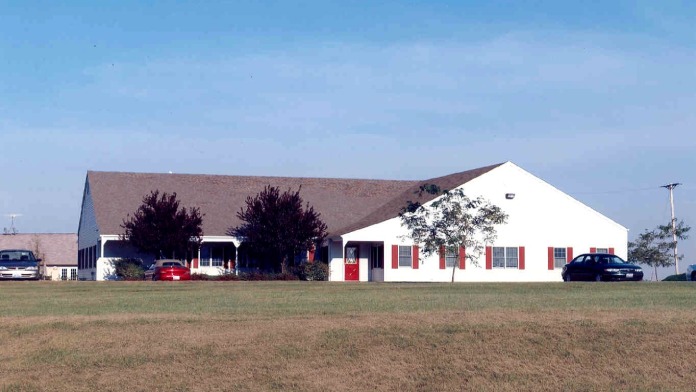

Accepted Insurance
Other Forms of Payment
Private insurance refers to any kind of healthcare coverage that isn't from the state or federal government. This includes individual and family plans offered by an employer or purchased from the Insurance Marketplace. Every plan will have different requirements and out of pocket costs so be sure to get the full details before you start treatment.
Self-pay involves paying for treatment out of your own pocket. You can use savings or credit, get a personal loan, or receive help from family and friends to fund your treatment. If you don't have insurance or your insurance plan doesn't cover a specific program, self-pay can help ensure you still get the care you need.
Financial aid can take many forms. Centers may have grants or scholarships available to clients who meet eligibility requirements. Programs that receive SAMHSA grants may have financial aid available for those who need treatment as well. Grants and scholarships can help you pai for treatment without having to repay.
Sliding scale payments are based on a client's income and family size. The goal is to make treatment affordable to everyone. By taking these factors into account, addiction recovery care providers help ensure that your treatment does not become a financial burden to you or your family, eliminating one barrier to care.
Medicare is a federal program that provides health insurance for those 65 and older. It also serves people under 65 with chronic and disabling health challenges. To use Medicare for addiction treatment you need to find a program that accepts Medicare and is in network with your plan. Out of pocket costs and preauthorization requirements vary, so always check with your provider.
Military members, veterans, and eligible dependents have access to specific insurance programs that help them get the care they need. TRICARE and VA insurance can help you access low cost or no cost addiction and mental health treatment. Programs that accept military insurance often have targeted treatment focused on the unique challenges military members, veterans, and their families face.
Medicaid is a state based program that helps lower-income individuals and families pay for healthcare. Medicaid covers addiction treatment so those enrolled can use their coverage to pay for rehab. When a program accepts Medicaid the client often pays very little or nothing out of their own pocket.
Addiction Treatments
Levels of Care
Outpatient Programs (OP) are for those seeking mental rehab or drug rehab, but who also stay at home every night. The main difference between outpatient treatment (OP) and intensive outpatient treatment (IOP) lies in the amount of hours the patient spends at the facility. Most of the time an outpatient program is designed for someone who has completed an inpatient stay and is looking to continue their growth in recovery. Outpatient is not meant to be the starting point, it is commonly referred to as aftercare.
When participating in an inpatient rehab program, you'll reside at the treatment center for the duration of the program. Your housing and meals are provided, allowing you to focus on your recovery without outside triggers, stressors, and other distractions. You'll receive daily addiction counseling, drawing on various psychotherapeutic approaches like cognitive behavioral therapy (CBT) and motivational interviewing. Many inpatient drug rehabs also offer complementary holistic therapies, such as yoga, meditation, or animal therapy, and creative arts therapy.
Intensive Outpatient Programs (IOP) are for those who want or need a very structured treatment program but who also wish to live at home and continue with certain responsibilities (such as work or school). IOP substance abuse treatment programs vary in duration and intensity, and certain outpatient rehab centers will offer individualized treatment programs.
Addiction treatment often begins with 24-hour clinical care in Illinois. This supervised setting is the best environment for detox.where medical staff can provide 24/7 supervision and responsive care as your body is cleansed of addictive substances. Doctors may prescribe antagonist and partial agonist drugs to counteract the effects of drugs or alcohol, or they may slowly taper down dosages of substances to end physical dependence on the drug.
Treatments
Mental health rehabs focus on helping individuals recover from mental illnesses like bipolar disorder, clinical depression, anxiety disorders, schizophrenia, and more. Mental health professionals at these facilities are trained to understand and treat mental health issues, both in individual and group settings.
Programs
Adult rehab programs include therapies tailored to each client's specific needs, goals, and recovery progress. They are tailored to the specific challenges adult clients may face, including family and work pressures and commitments. From inpatient and residential treatment to various levels of outpatient services, there are many options available. Some facilities also help adults work through co-occurring conditions, like anxiety, that can accompany addiction.
Young adulthood can be an exciting, yet difficult, time of transition. Individuals in their late teens to mid-20s face unique stressors related to school, jobs, families, and social circles, which can lead to a rise in substance use. Rehab centers with dedicated young adult programs will include activities and amenities that cater to this age group, with an emphasis on specialized counseling, peer socialization, and ongoing aftercare.
Clinical Services
If you engage in cognitive behavioral therapy in Illinois, your therapist will work with you to change your thinking patterns. You'll learn how to recognize faulty thinking and develop skills to deal with stress without using substances.
Dialectical Behavior Therapy (DBT) is a modified form of Cognitive Behavioral Therapy (CBT), a treatment designed to help people understand and ultimately affect the relationship between their thoughts, feelings, and behaviors. DBT is often used for individuals who struggle with self-harm behaviors, such as self-mutilation (cutting) and suicidal thoughts, urges, or attempts. It has been proven clinically effective for those who struggle with out-of-control emotions and mental health illnesses like Borderline Personality Disorder.
Group therapy is any therapeutic work that happens in a group (not one-on-one). There are a number of different group therapy modalities, including support groups, experiential therapy, psycho-education, and more. Group therapy involves treatment as well as processing interaction between group members.
In individual therapy, a patient meets one-on-one with a trained psychologist or counselor. Therapy is a pivotal part of effective substance abuse treatment, as it often covers root causes of addiction, including challenges faced by the patient in their social, family, and work/school life.
Motivational interviewing in Illinois is person centered and collaborative. This method allows the therapist to come alongside the client to address the issue of ambivalence toward change. By listening and reflecting, the therapist helps the client see the need for change and commit to making changes.
Trauma therapy addresses traumatic incidents from a client's past that are likely affecting their present-day experience. Trauma is often one of the primary triggers and potential causes of addiction, and can stem from child sexual abuse, domestic violence, having a parent with a mental illness, losing one or both parents at a young age, teenage or adult sexual assault, or any number of other factors. The purpose of trauma therapy is to allow a patient to process trauma and move through and past it, with the help of trained and compassionate mental health professionals.
During couples therapy in Illinois, you may work on a variety of relationship challenges. Couples therapy can address topics such as finances, children, health, addiction, intimacy, external stressors, and family relationships. You'll develop tools to address these types of challenges in healthy ways.
Family Care Coordinators (FCC) offer support to children and their families by helping them find needed resources. The Care Coordinators meet with families in the comfort of their own homes or another location. Through the help of an FCC, children, families, and communities have the opportunity to become healthier and happier.
Amenities
-
Residential Setting
-
Private Rooms
Staff & Accreditations
Staff
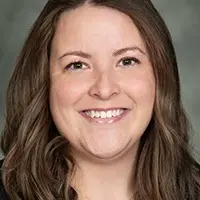
Charis Allen, MSW, LCSW, CADC
Supervisor of SUPR Services
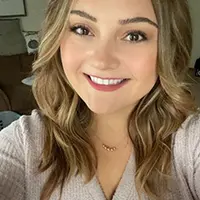
LeAnn Alexandria, MHP
Behavioral Health Clinician
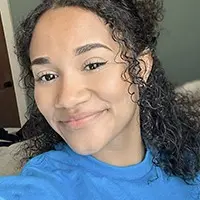
Rainbow Allen, BA, MHP
Youth CST Clinician
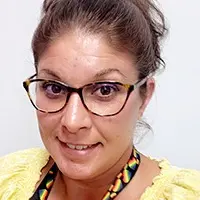
Crystal Ammann, BS, MHP
Behavioral Health Clinician

Hannah Anderson, MHP
Behavioral Health Clinician
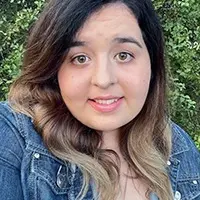
Laura Arnold, MS, QMHP
Behavioral Health Clinician
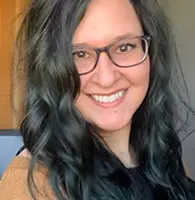
Tanja Babel, MSW, MHP
Behavioral Health Clinician
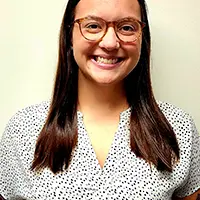
Chloe Baer, BA, MHP
Youth CST Clinician
Accreditations

The Joint Commission, formerly known as JCAHO, is a nonprofit organization that accredits rehab organizations and programs. Founded in 1951, the Joint Commision's mission is to improve the quality of patient care and demonstrating the quality of patient care.
Joint Commission Accreditation: Yes
Contact Information
1122 Healthcare Drive
Mount Carroll, IL 61053
